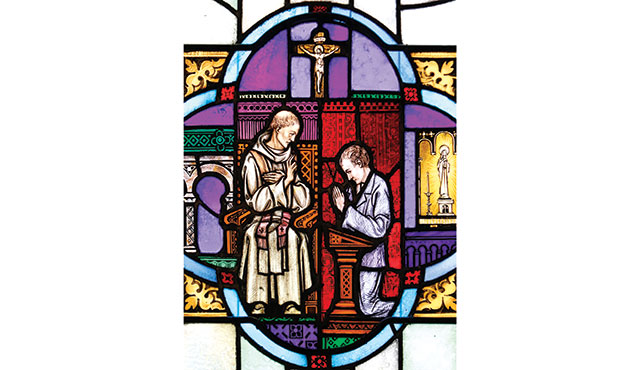A new law has been proposed that could forever alter the Catholic Church and one of our most sacred traditions.
If passed by California legislators and signed into law, Senate Bill 360 (“SB 360”) would encroach on the sacrosanct tradition of confession. The bill, introduced in February by State Sen. Jerry Hill (D-San Mateo), would require clergy to report suspicions of child abuse and neglect to secular authorities, even if the information was acquired during confession.
Under the Child Abuse and Neglect Reporting Act, members of clergy are mandated reporters. This existing law requires that all clergy, in their professional capacity, report suspicions of child abuse and neglect they acquire during the scope of their employment. An exception is made if that knowledge is acquired during the sacrament of confession.
SB 360 would remove that exception. This goes too far.
Some will hail the loss of the exemption as a good thing, but in reality the requirements would lead to many impracticalities. The majority of the bill is fine, specifying who mandatory reporters are. If I as a priest learn about sexual abuse – or even the suspected abuse – of a minor through conversation, spiritual counseling, from a concerned student on the playground, or by means of numerous other ways, I am required to make a report to Child Protective Services immediately (or as soon as practically possible) and could be prosecuted for failing to do so.
What is heard in confession, however, is different. First, penitents (those who wish to confess their sins in the sacrament of confession) always enjoy the right to confess in an anonymous fashion – “behind the grille.” Confessing behind a screen allows the penitent to focus only on communicating his sins and expressing contrition, rather than needing to worry about making eye contact or be otherwise distracted. A priest, for his part, has the right to hear confessions only behind the grille and may refuse to hear confessions “face to face.” This is regulated by Church law. For those of us in large parishes, an individual priest often hears a hundred confessions or more a week. When one presents him or herself in the confessional box, a priest may not ask the person his or her name, etc. Moreover, it is not uncommon for people to present themselves to parishes not their own. I am not aware of the identity of the majority of people who confess to me. If someone were to confess having sexually abused a minor, would it be my duty to ask the person for identification, including address and contact information, so that I could turn that person in to the authorities? If that person were to confess behind the grille, would I need to somehow detain him or her and force the person to provide valid identification? Would I need to take a photo of the person? The author of the bill might have the idea that the priest knows each person who approaches him. This is not close to being reality in most parishes across the state, and certainly not in dense areas such as Orange County.
This bill is not just impractical – it’s a violation of the U.S. Constitution. One of our nation’s guiding principles is the separation of church and state. This bill represents a blatant overreach by the government into religious affairs.
I am limiting my objections here only to the practical concerns, which cannot be overcome without changing the entire nature of sacramental confession.
Protecting children is our highest priority, but there is no way a priest in good conscience could obey such a flawed law. Let’s work together to stop this attack on us and one of the most important sacraments of our faith.
Priests and lay Catholics alike should not be silent about this bill. The stakes are high. We must not sit back and simply be quiet when it comes to bills that could result in the rupturing of a sacred centuries-old practice in the Church. Please let your state legislator know that SB 360 violates religious liberty and has no place in our society.

